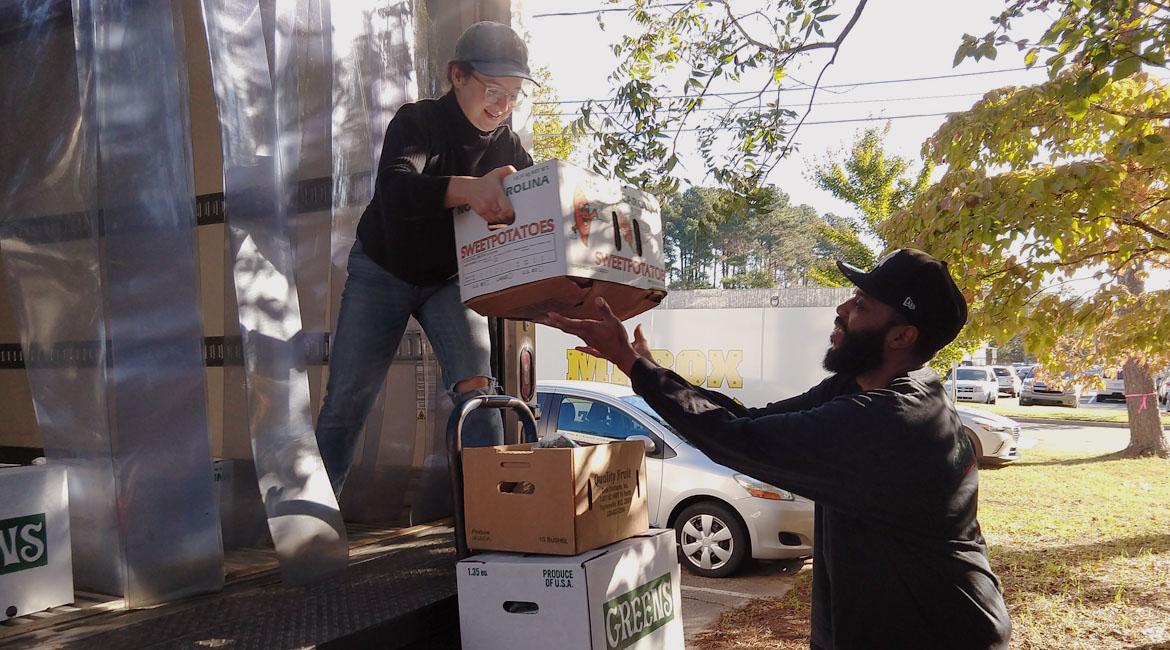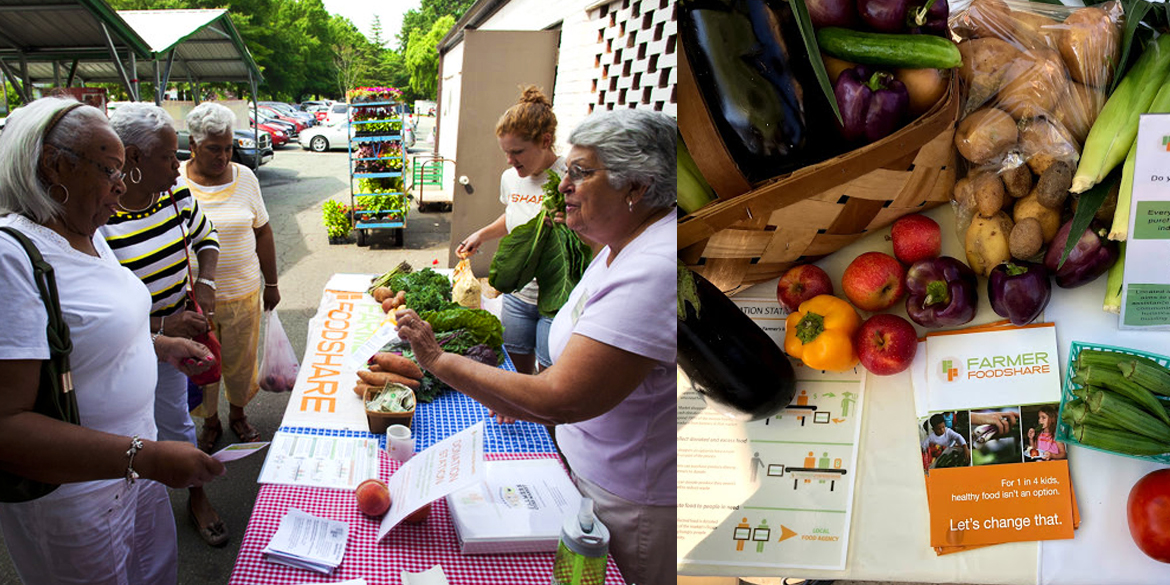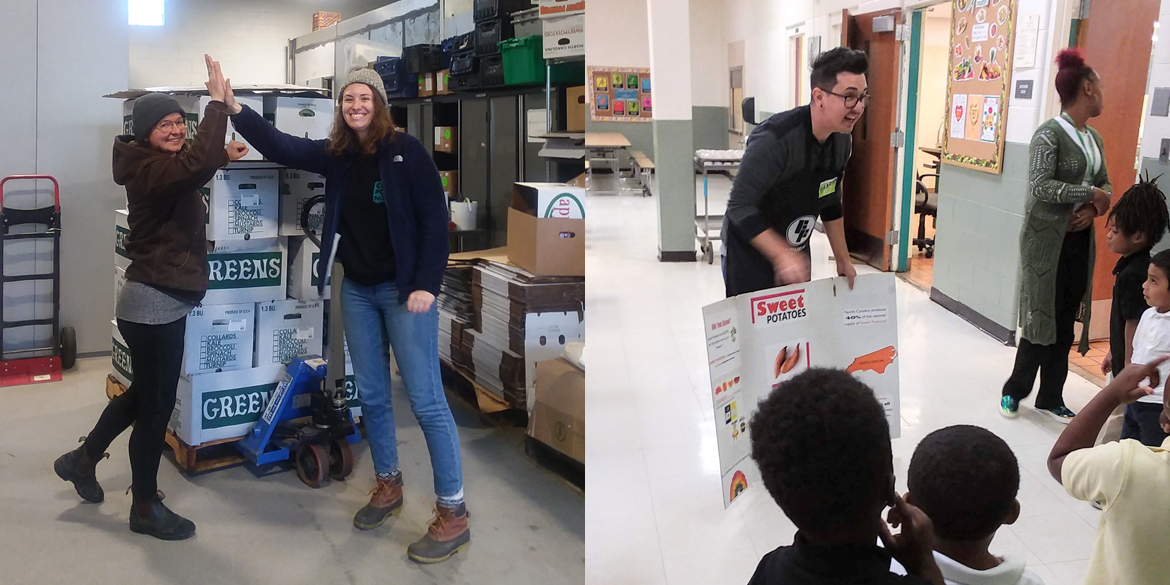Partner Profile: How Farmer Foodshare improves access to healthy food in North Carolina

In many parts of the country, communities in need have a hard time getting access to fresh, nutritious, healthy food. And yet at the same time, not far away, you’ll find local farmers who are struggling to find a market for their produce.
You don’t have to look any further to see evidence of this gap than North Carolina. Even though North Carolina is the 8th largest agricultural producer in the country, it’s the 9th hungriest state — where 1 in 5 children and 1 in 8 adults suffer from food insecurity. That’s one reason OMD has launched a pilot project in North Carolina to get more plant-based foods served in restaurants and K-12 school cafeterias. Another organization that recognizes the need is Durham-based Farmer Foodshare.
“The food system is really not functioning to support either end — the producer, or the people in need,” Community Outreach Manager, Whitney Sewell says.
The 10-year-old organization was founded so that “the farmers and the people who eat their food would be at the same table,” Sewell says. “We’ve designed a new food system.”

Farmer Foodshare seeks to help bridge the gap with three programs. Its farmer’s market “donation stations,” which can now be found at around 40 markets across the state, grew out of the observation that many small farmers had produce left over at the end of the day. At each station, shoppers can drop off bags of produce they’ve purchased, or make a cash donation, which is used to buy unsold fruits and veggies when the market closes. The donated produce is then contributed to local community organizations like food banks or church feeding programs.
A second branch of Farmer Foodshare seeks to connect growers with commercial markets. Knowing that many local farmers are too small to do business with large buyers like schools and hospitals, Farmer Foodshare developed the Wholesale Market, buying produce from farmers at wholesale prices, and distributing it to large purchasers at competitive prices.
"We’re heavily invested in the farmer as a part of our community."
What sets the program apart from other commercial wholesalers is Farmer Foodshare’s focus on small to mid-sized farms, and its special focus on working with farms owned by women and people of color, Sewell says. The organization also provides technical support to farmers seeking to scale up their businesses, such as helping them apply and qualify for certification to sell to public institutions like hospitals. “We’re heavily invested in the farmer as a part of our community,” Sewell says.

Finally, Farmer Foodshare works to introduce the next generation of eaters (and potential farmers!) to the bounty of North Carolina through its Food Ambassadors program. Each week, volunteers visit public schools around Durham to introduce one of the fresh, local ingredients the school will be receiving in that week’s delivery. After learning about the food and how it’s grown, kids get a chance to give it a taste test (a small prize like a sticker or pencil helps motivate picky eaters to try a nibble), and “vote” on whether they liked it or not. The idea, Sewell says, is to encourage kids to try some of the fresh ingredients making it into the cafeteria.
In 2017, Farmer Foodshare worked with more than 600 local farmers to bring 341,000 pounds of food to 92,770 people. And the program is still growing. Sewell says the organization is working to reach out to more farmers and expand to serve more people throughout the state. “For certain there are going to be more farmers to work with, and there are going to be people who need that food,” she says, “and we’re going to look for ways to get it to them.”
Want to get involved? North Carolina residents can volunteer for Farmer Foodshare’s Donation Station, Food Ambassador, and Community Foodshare program (which distributes food to participating agencies). And people anywhere can show their support with a donation.
What’s Next?
Food justice is environmental justice. Learn more about our Pilot program and why North Carolina is ground zero for expanding access and changing the food system.


